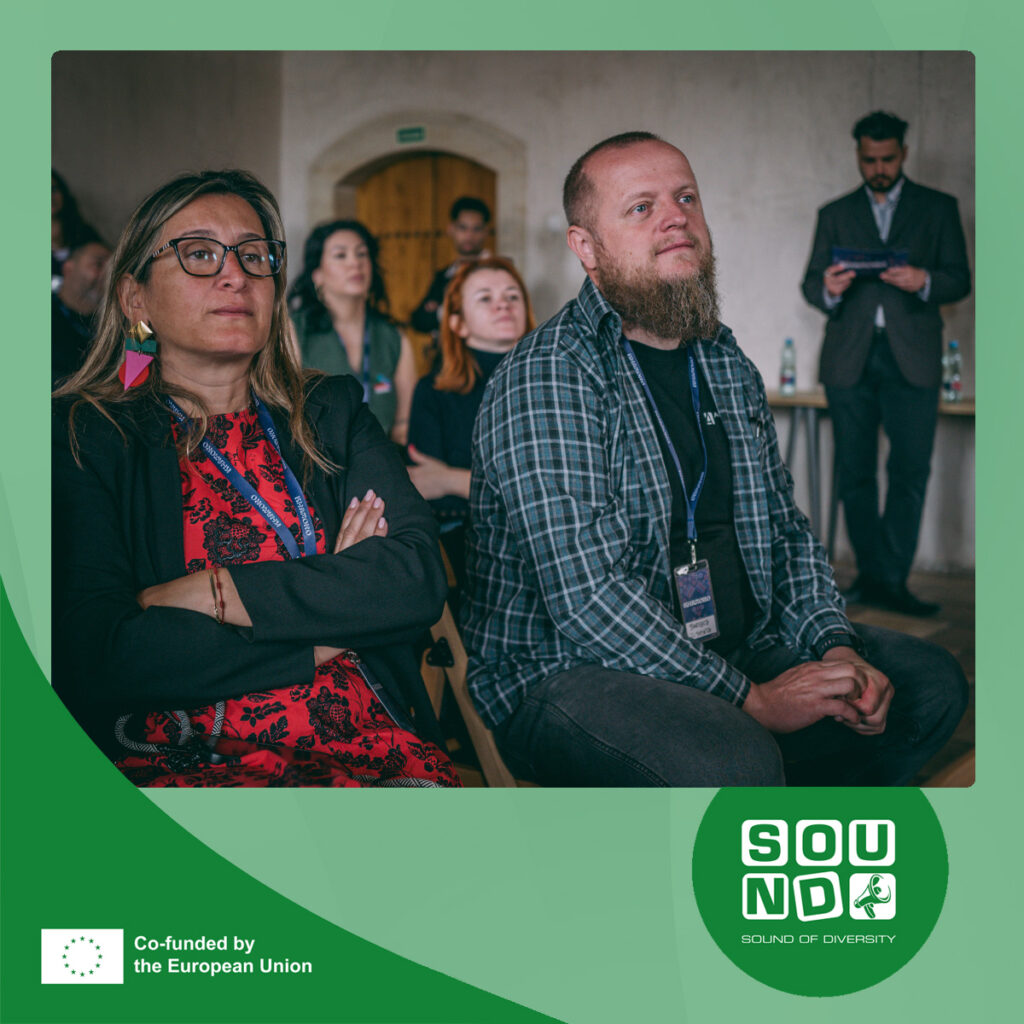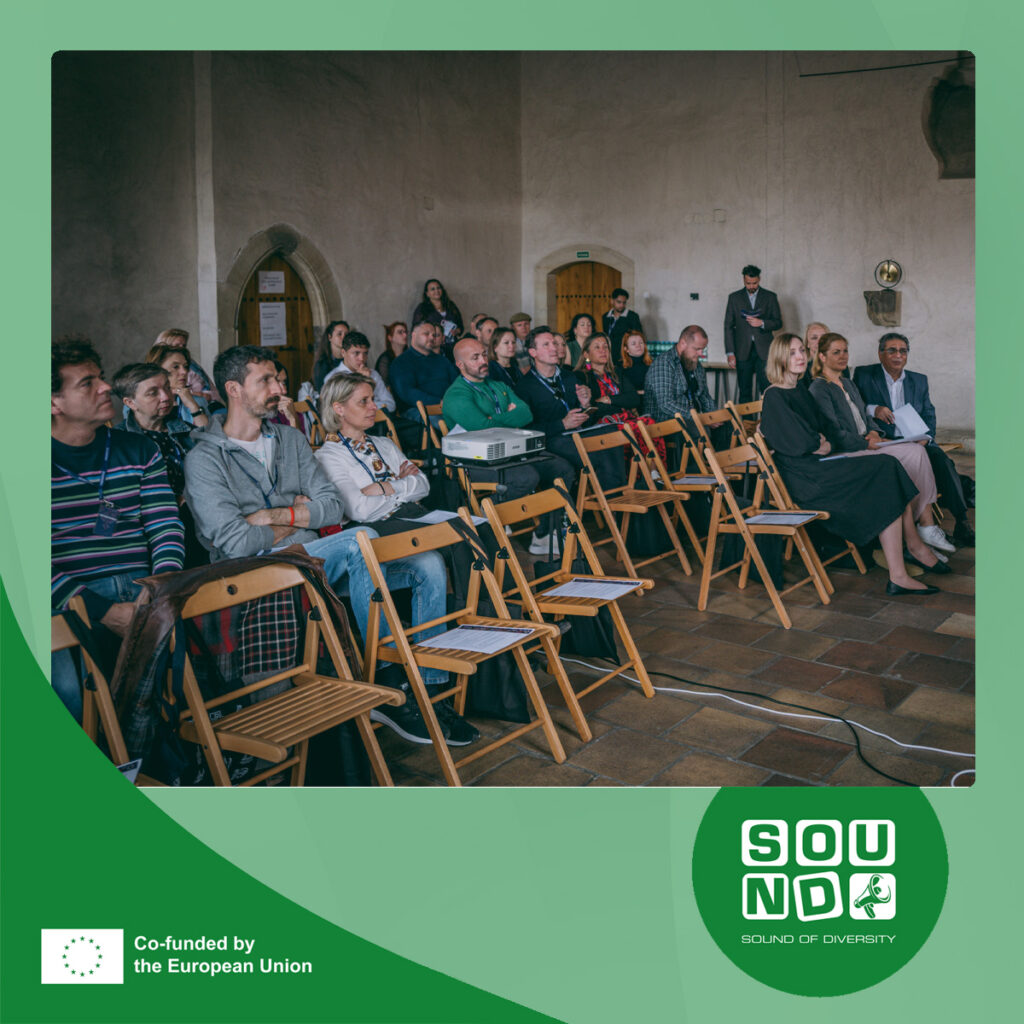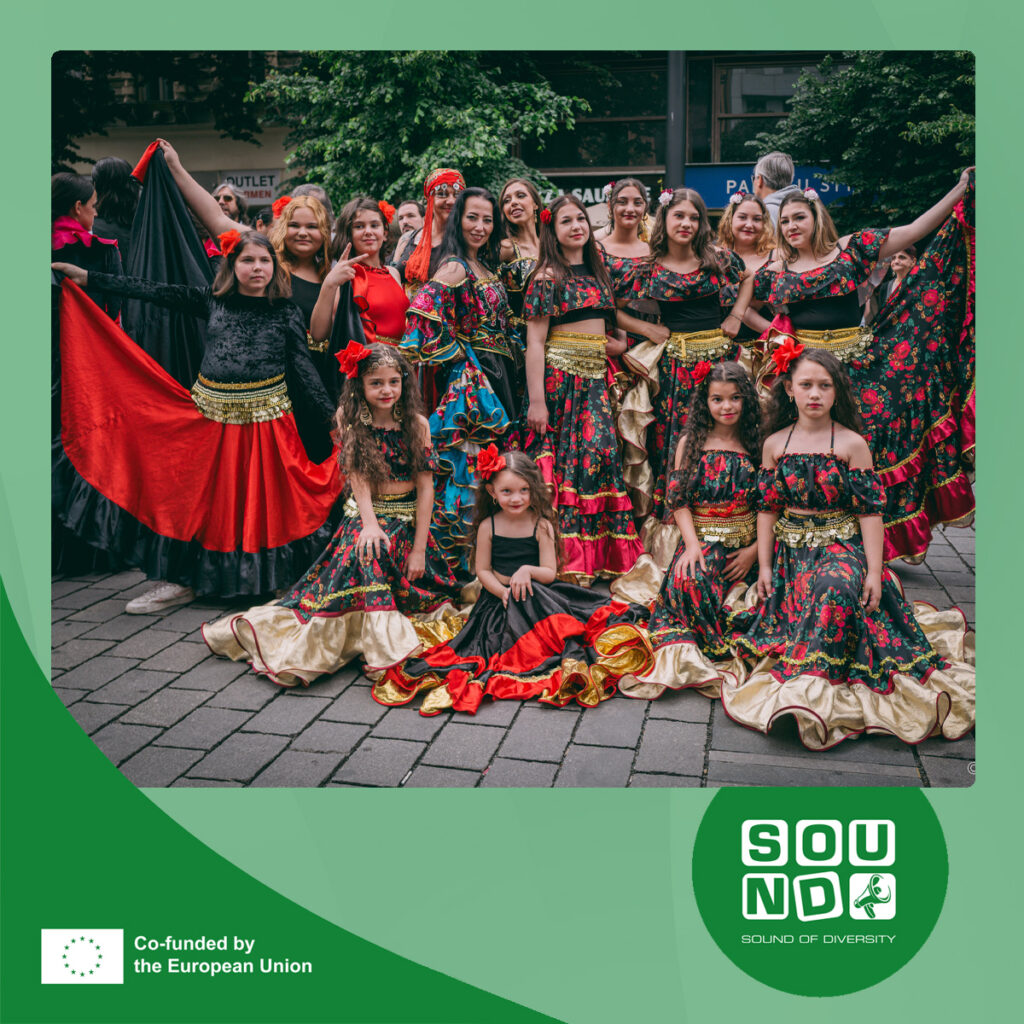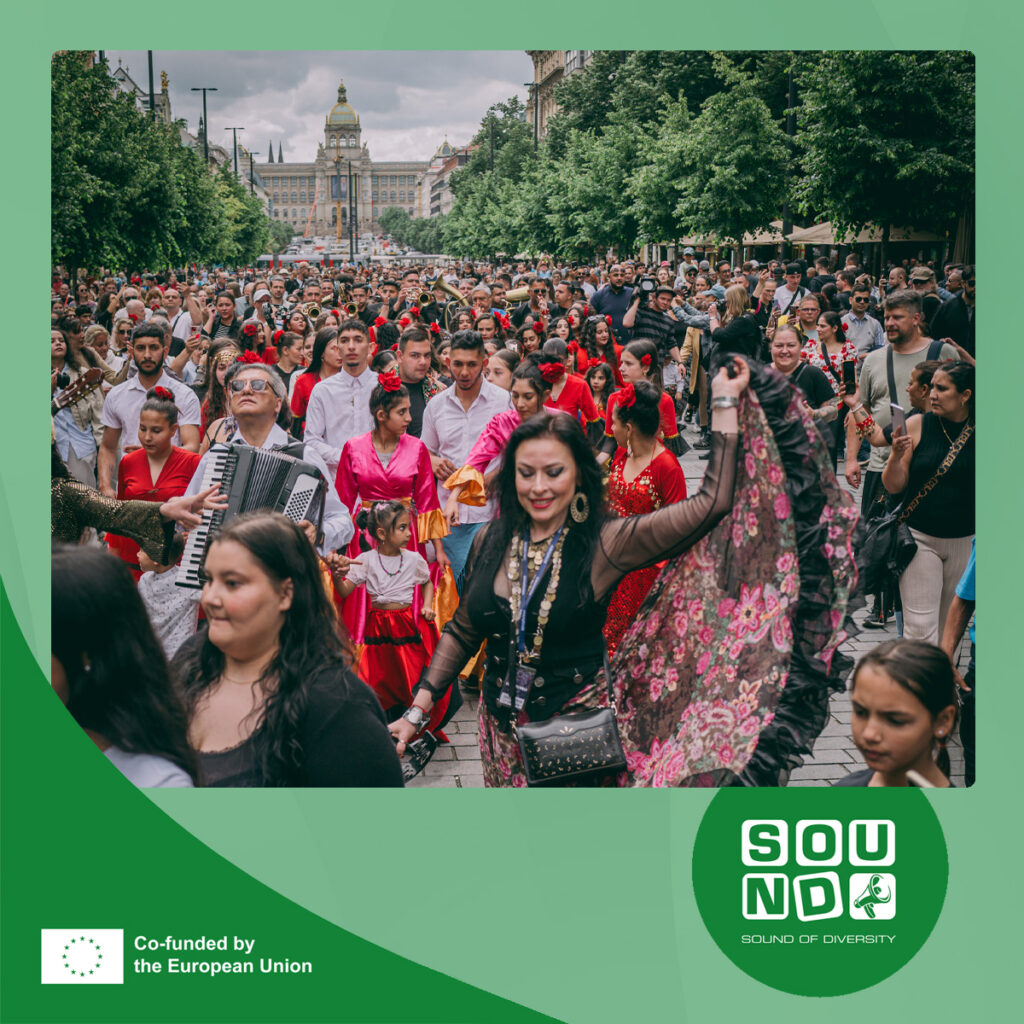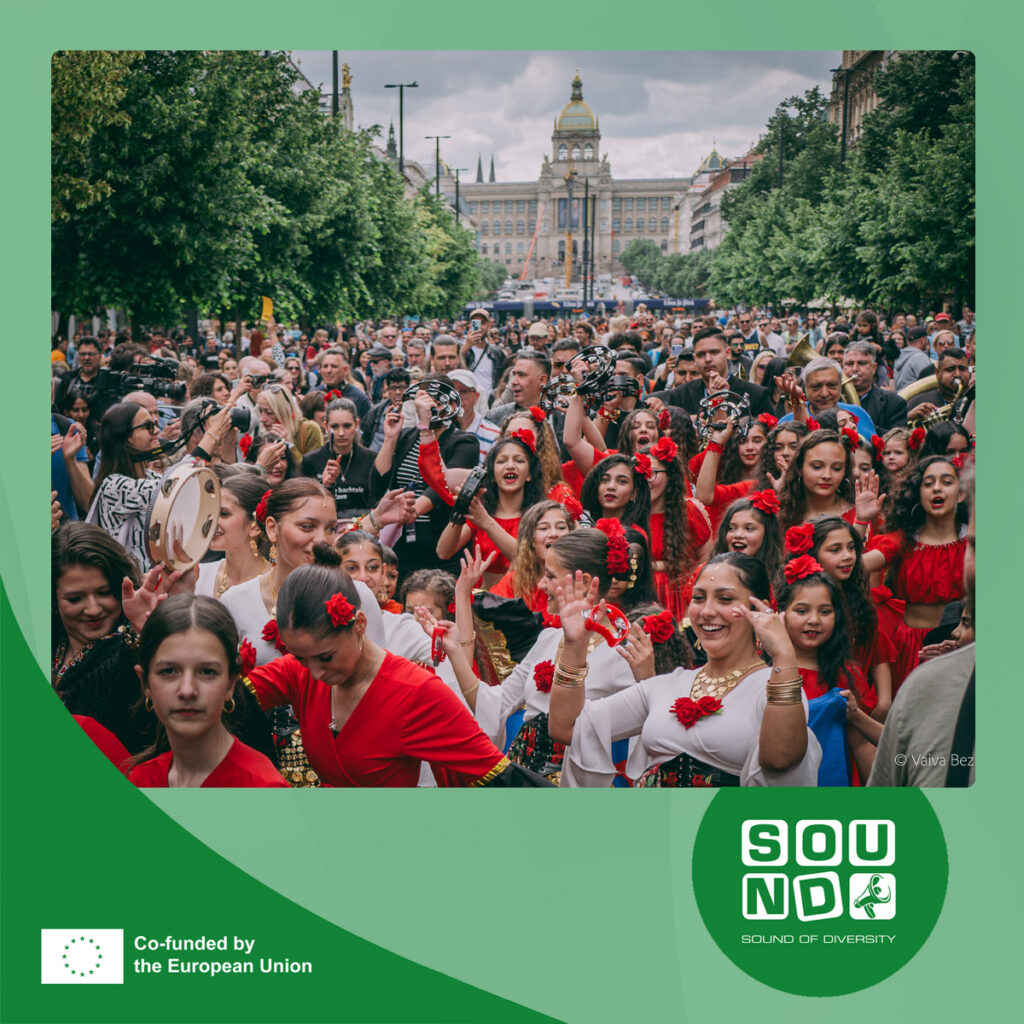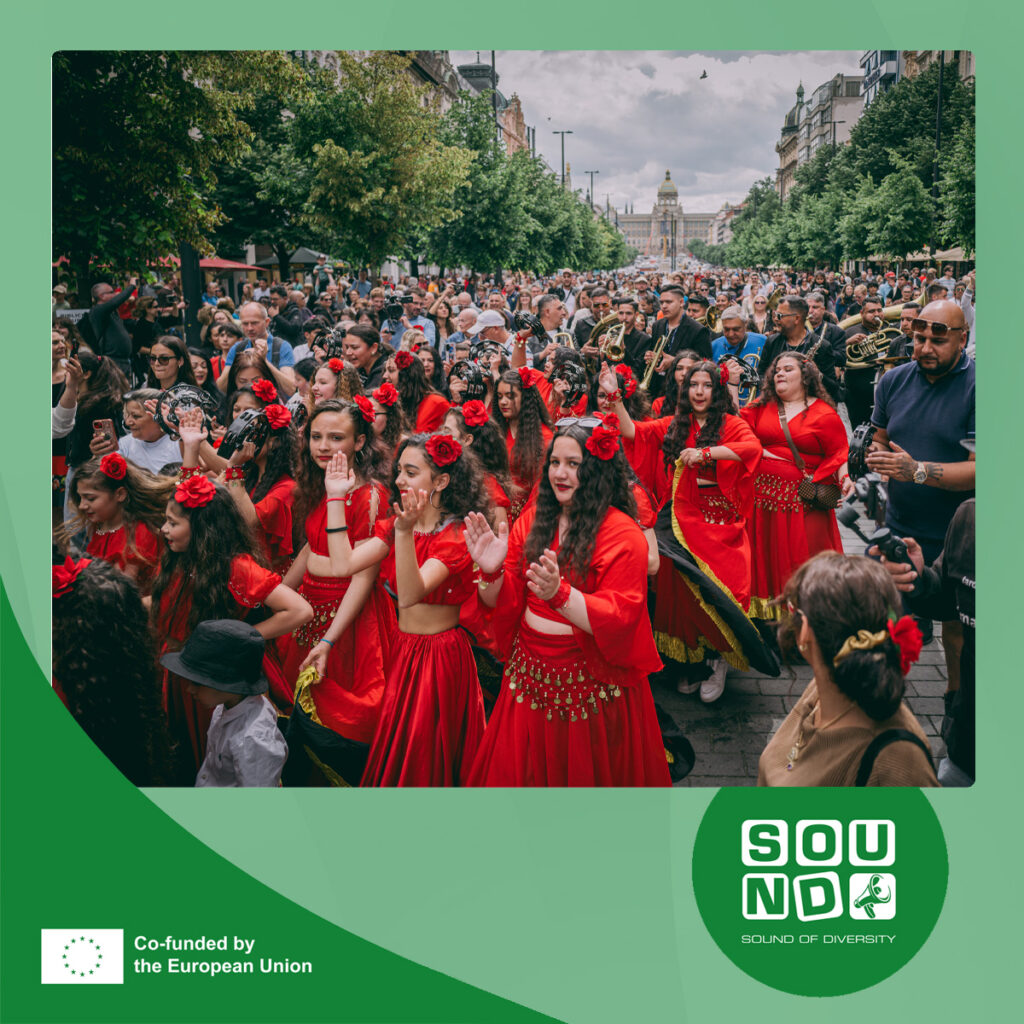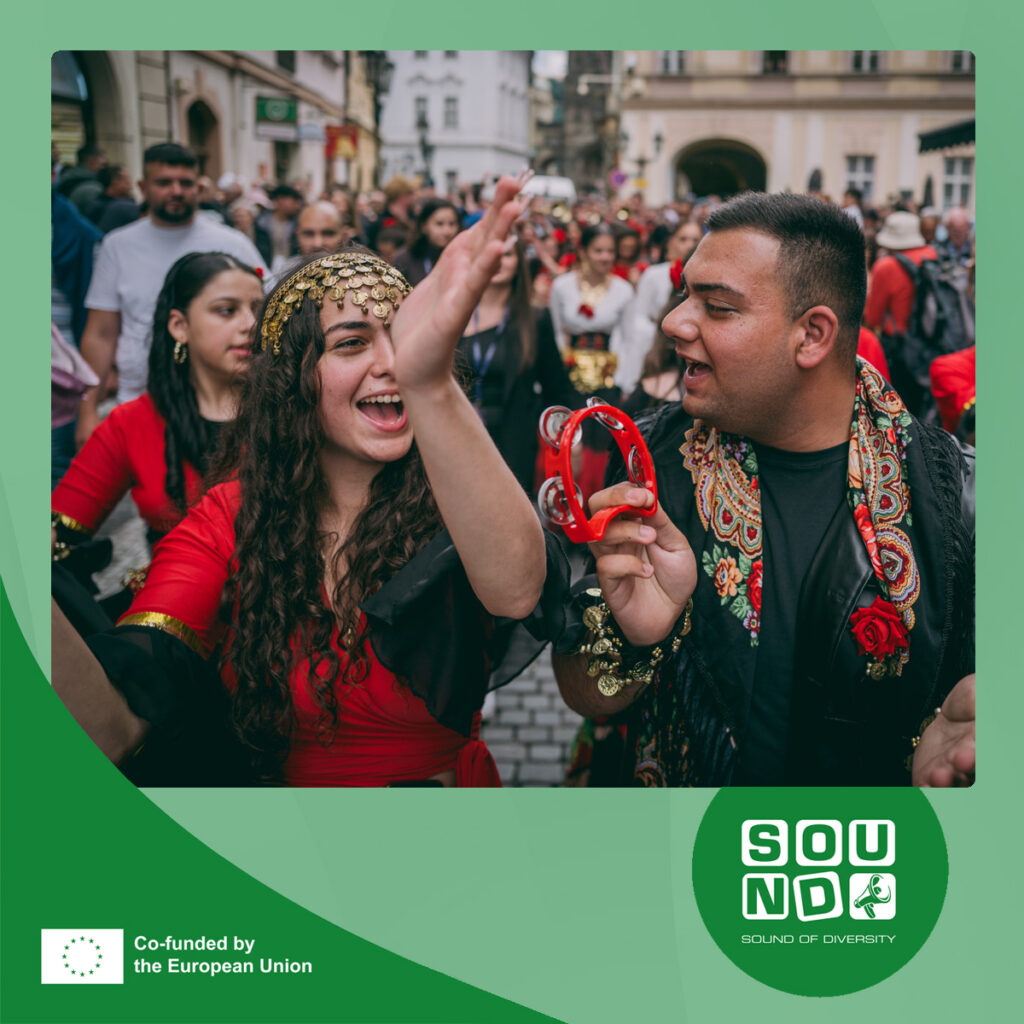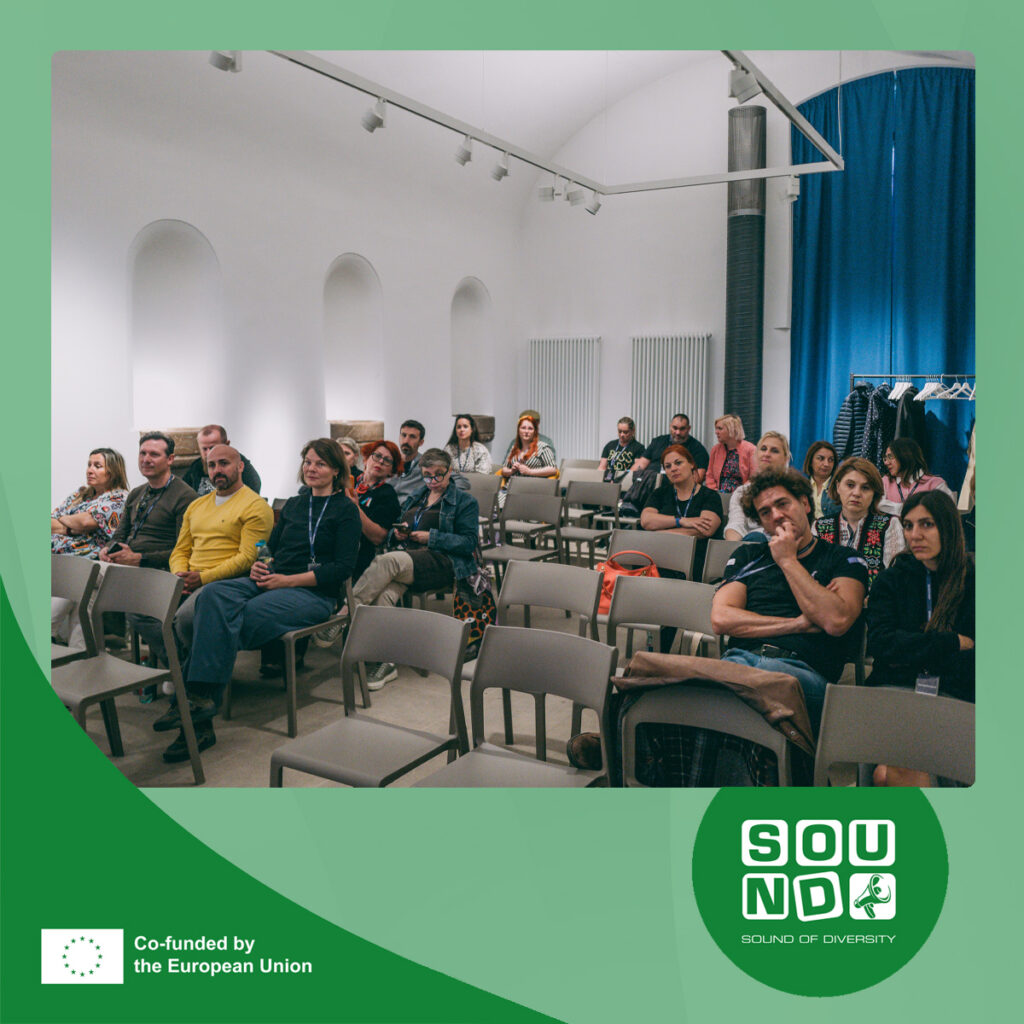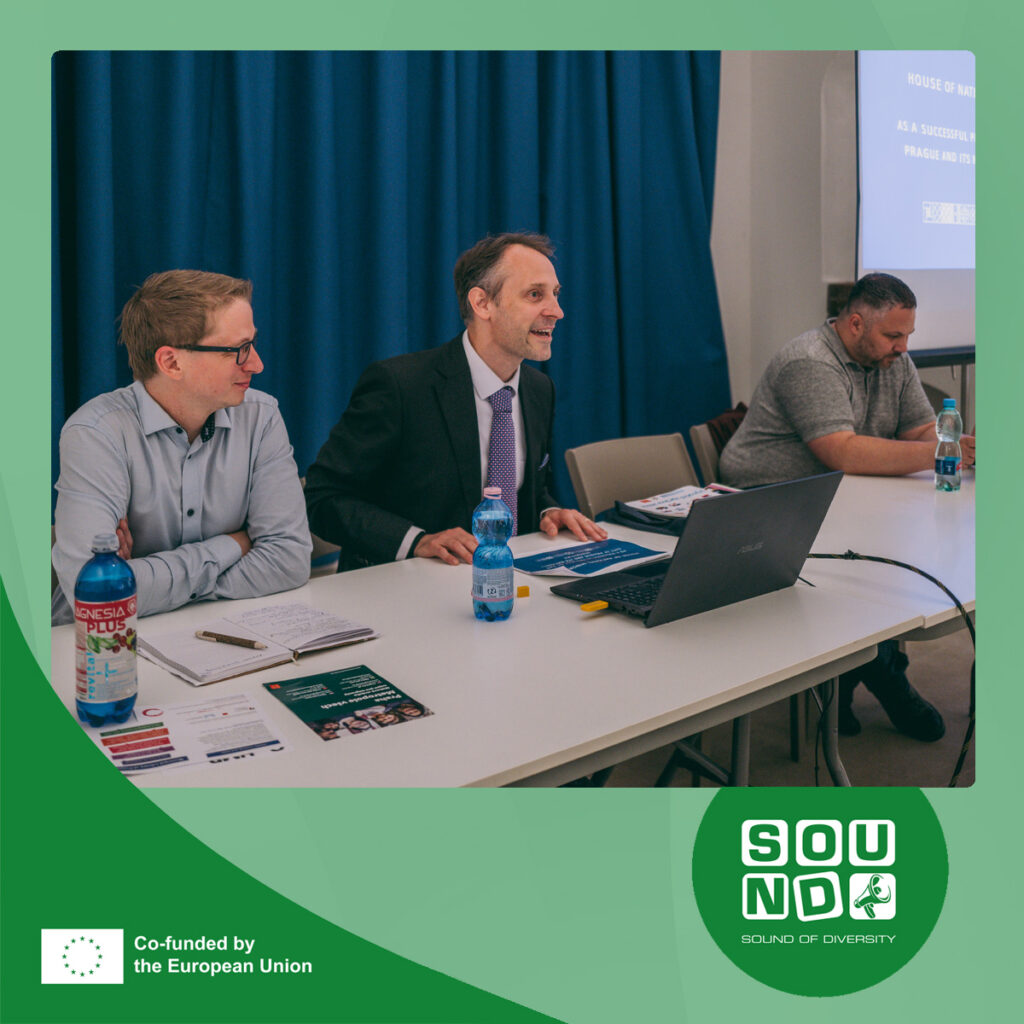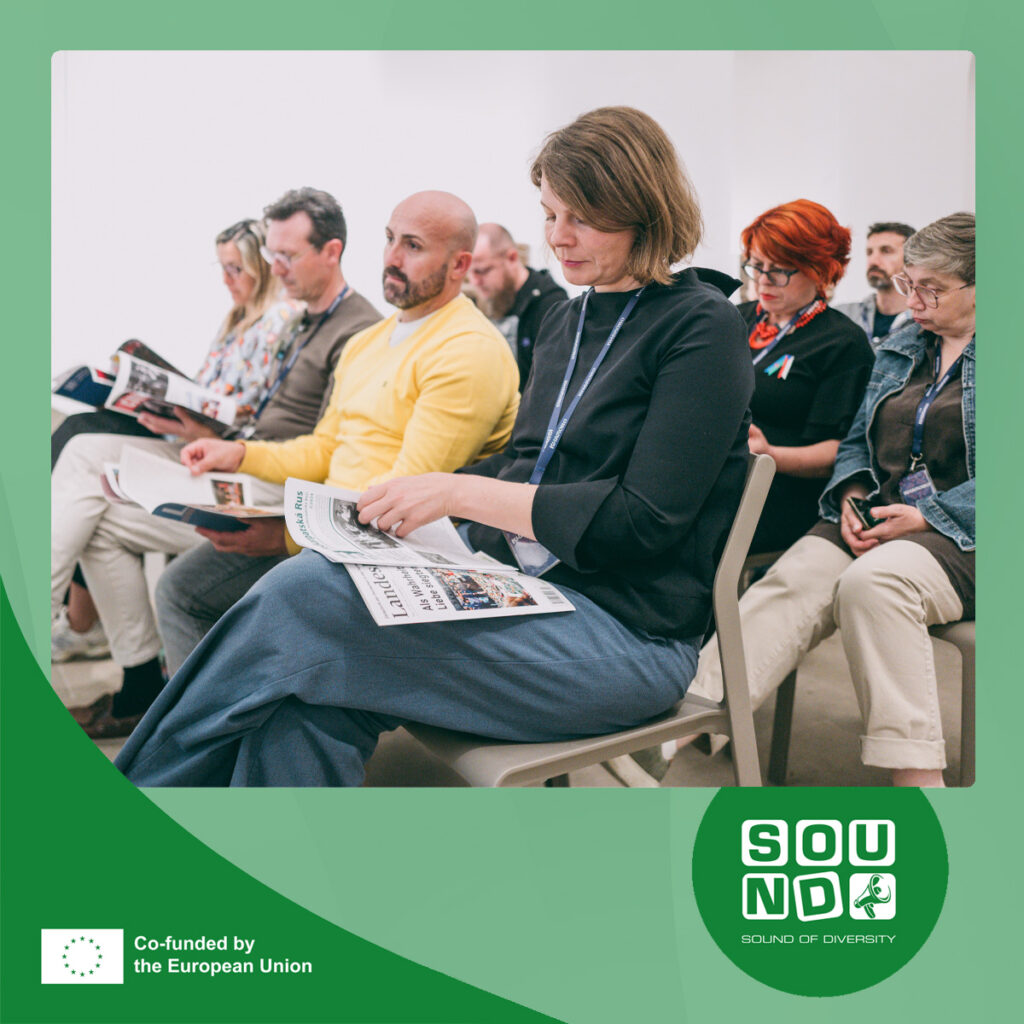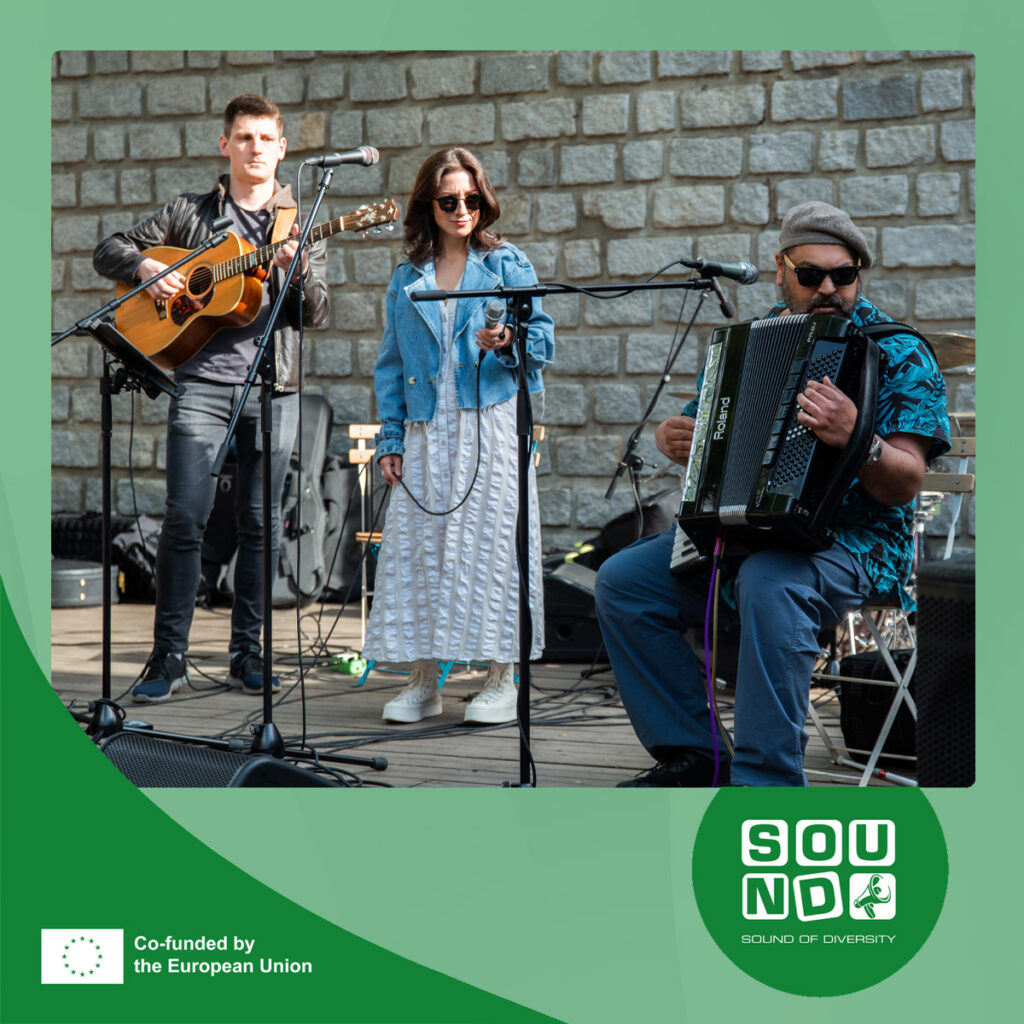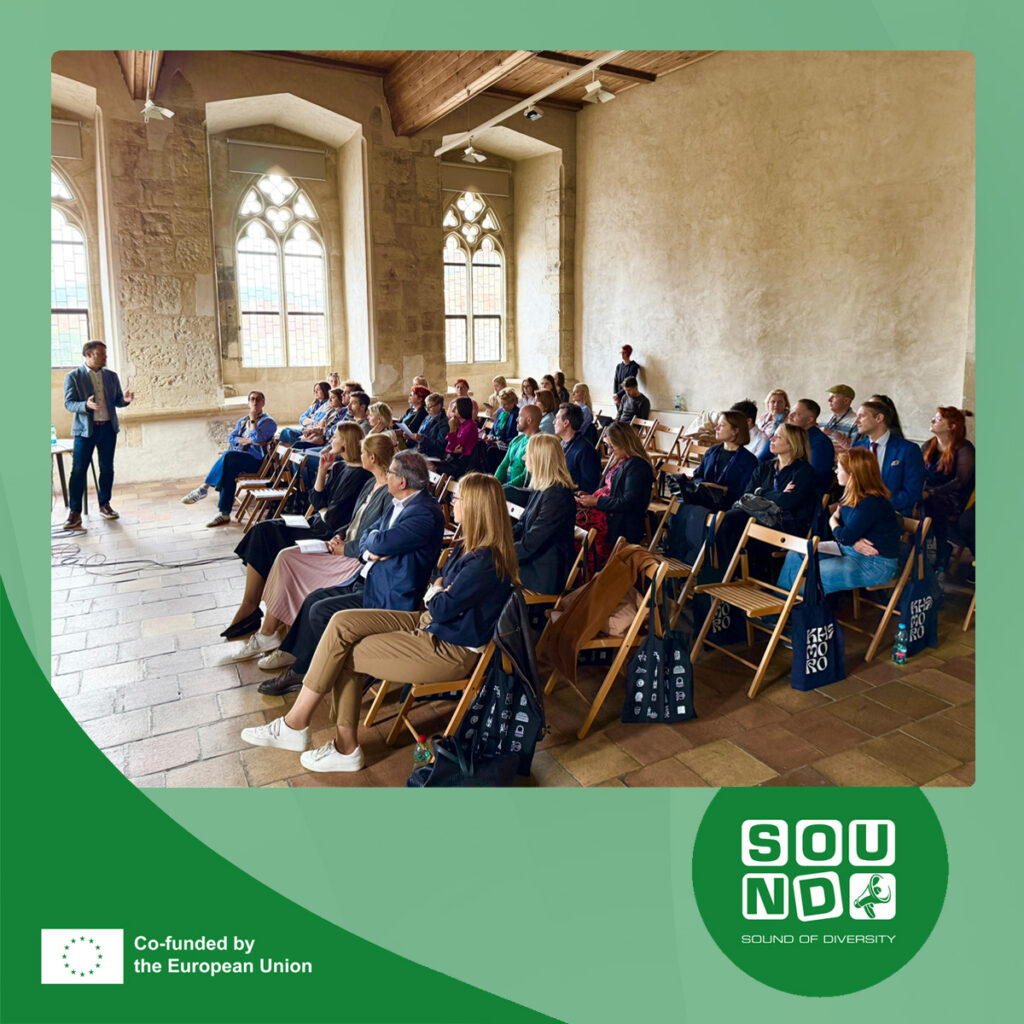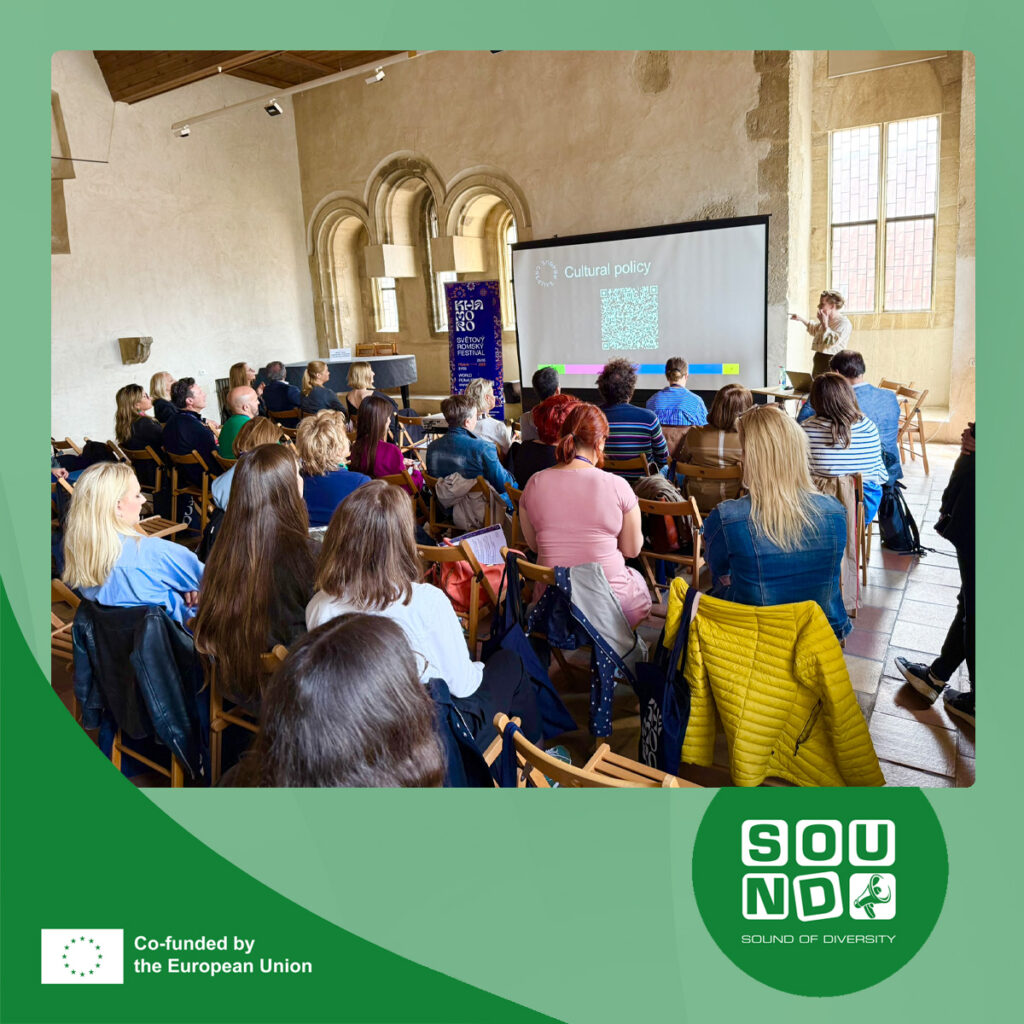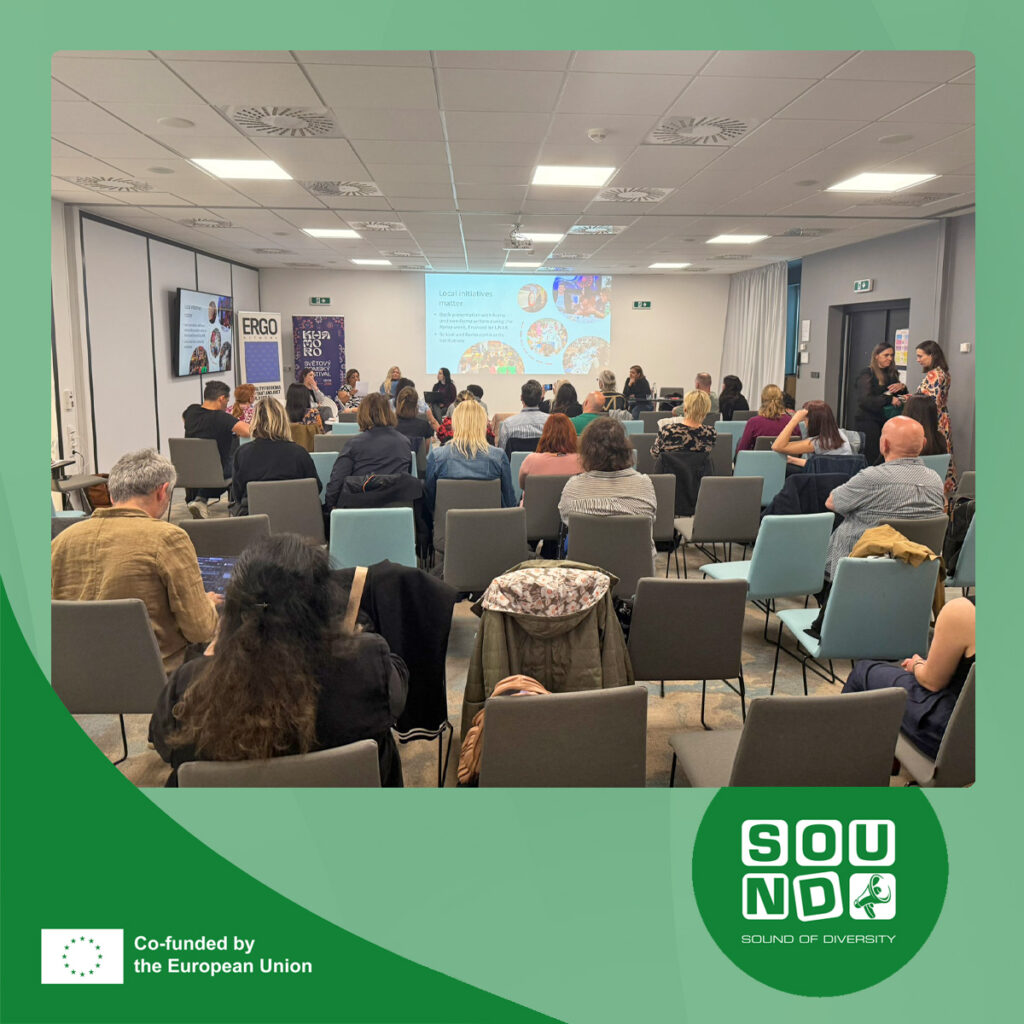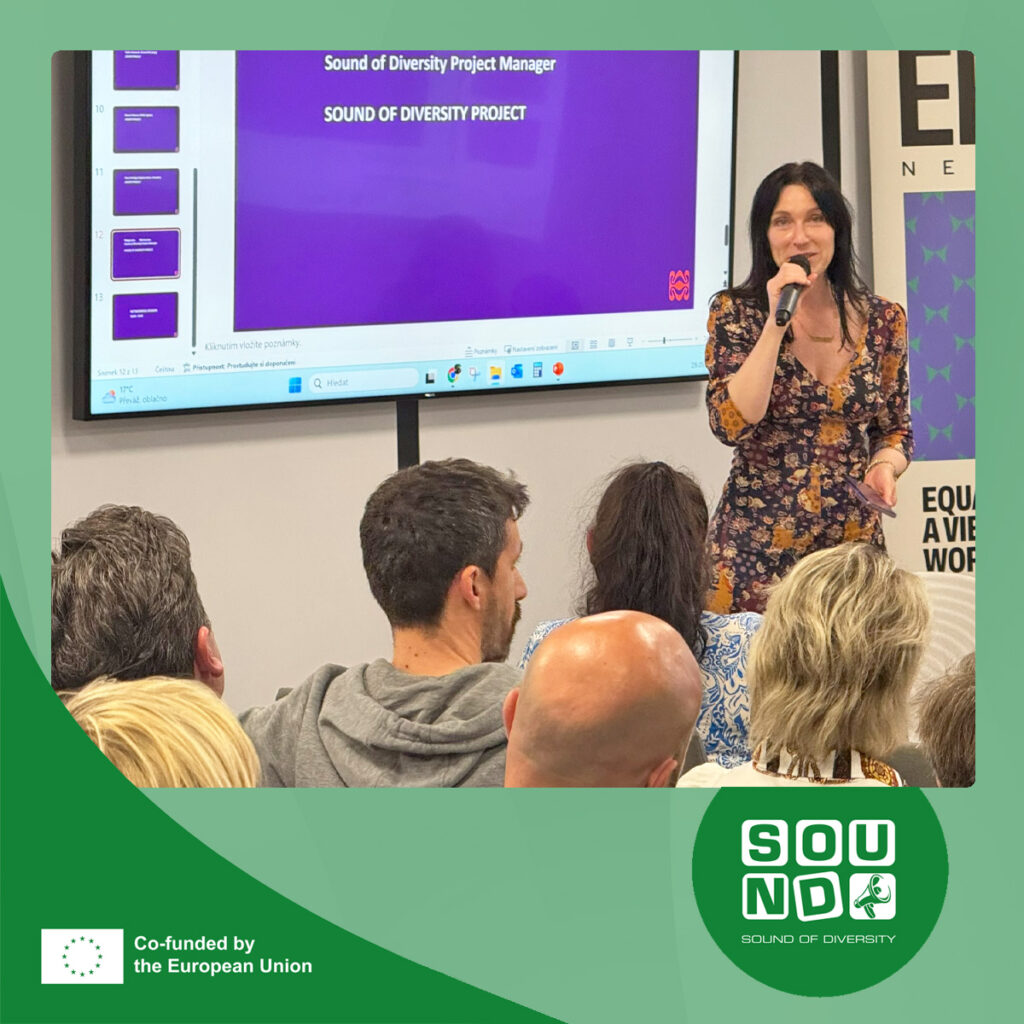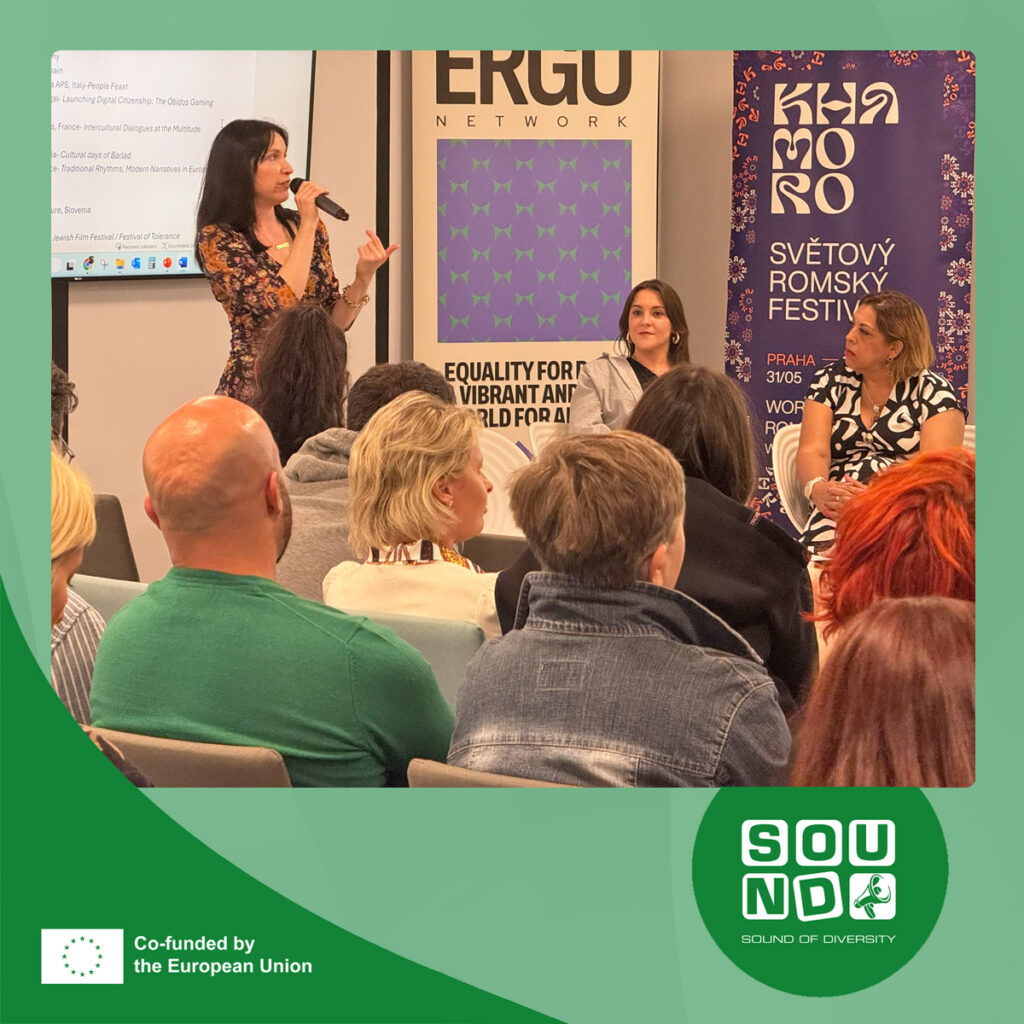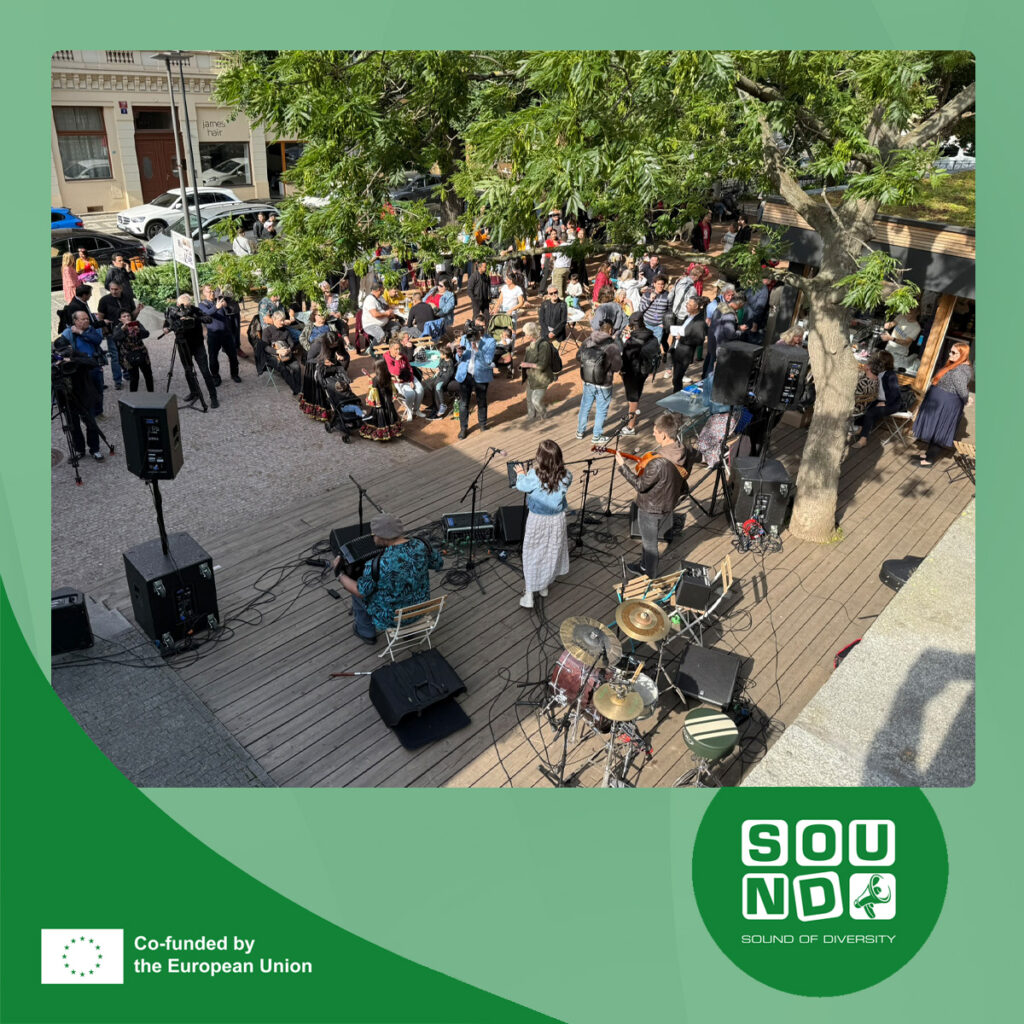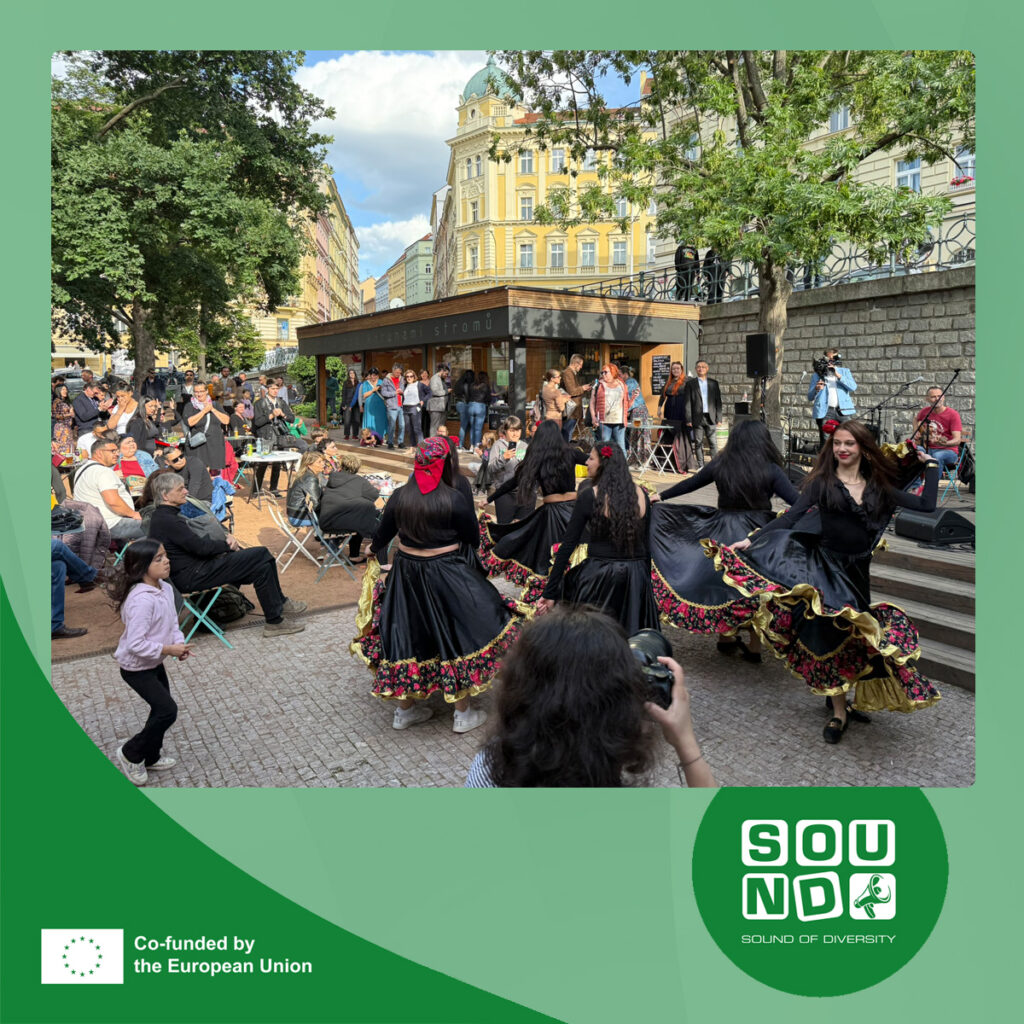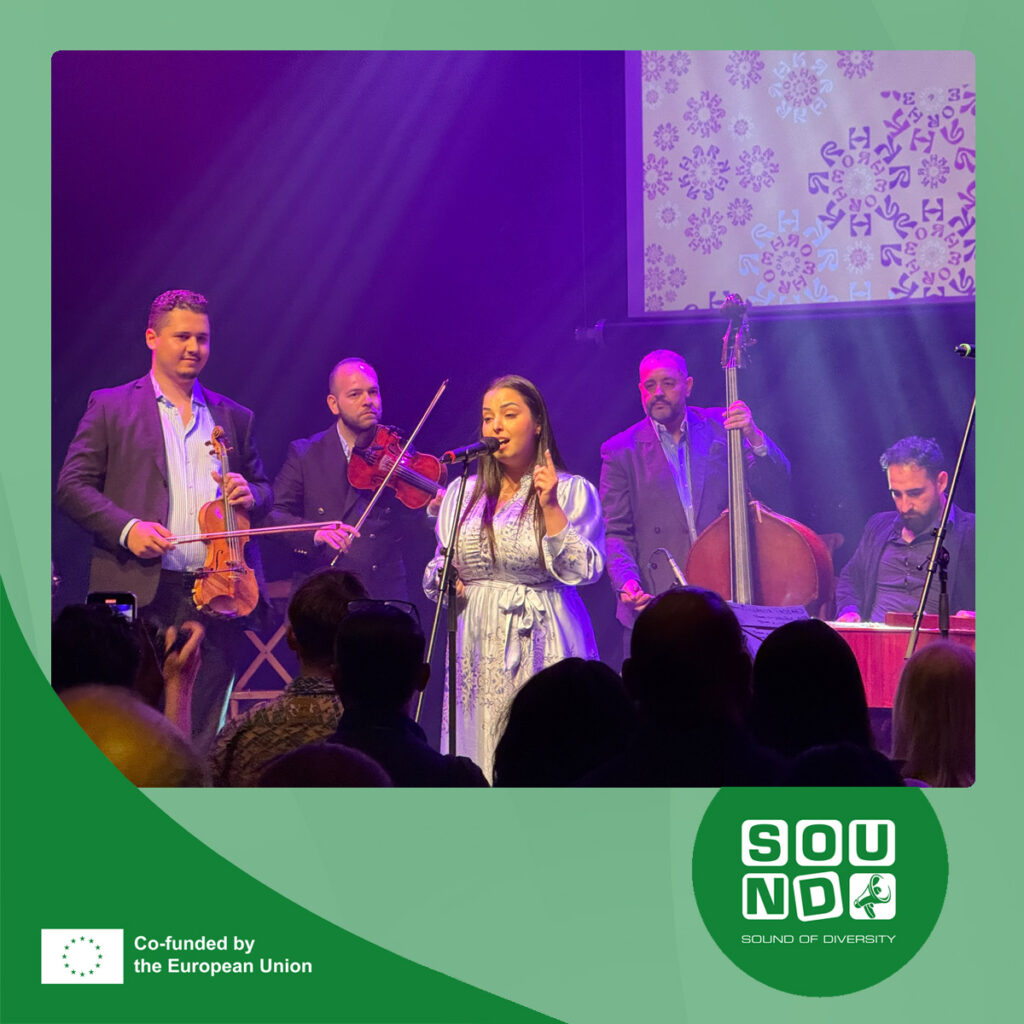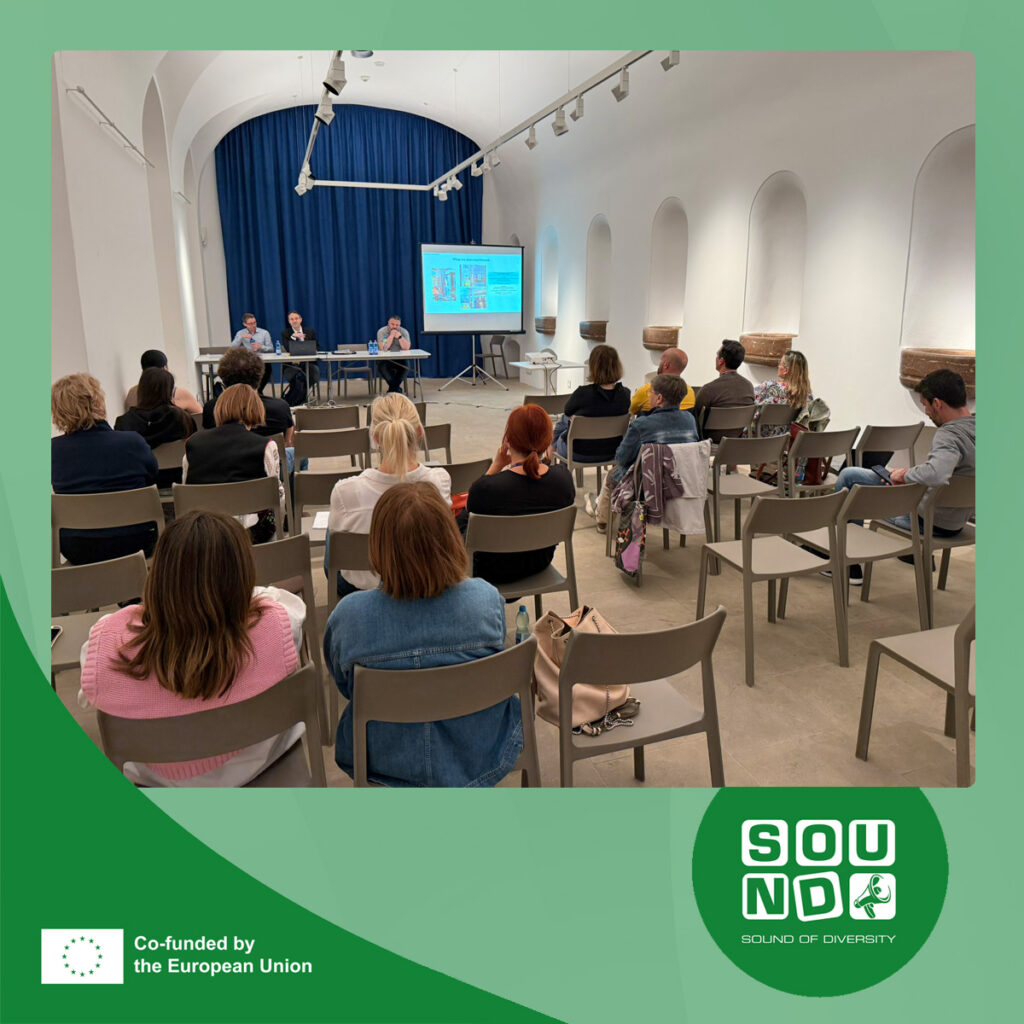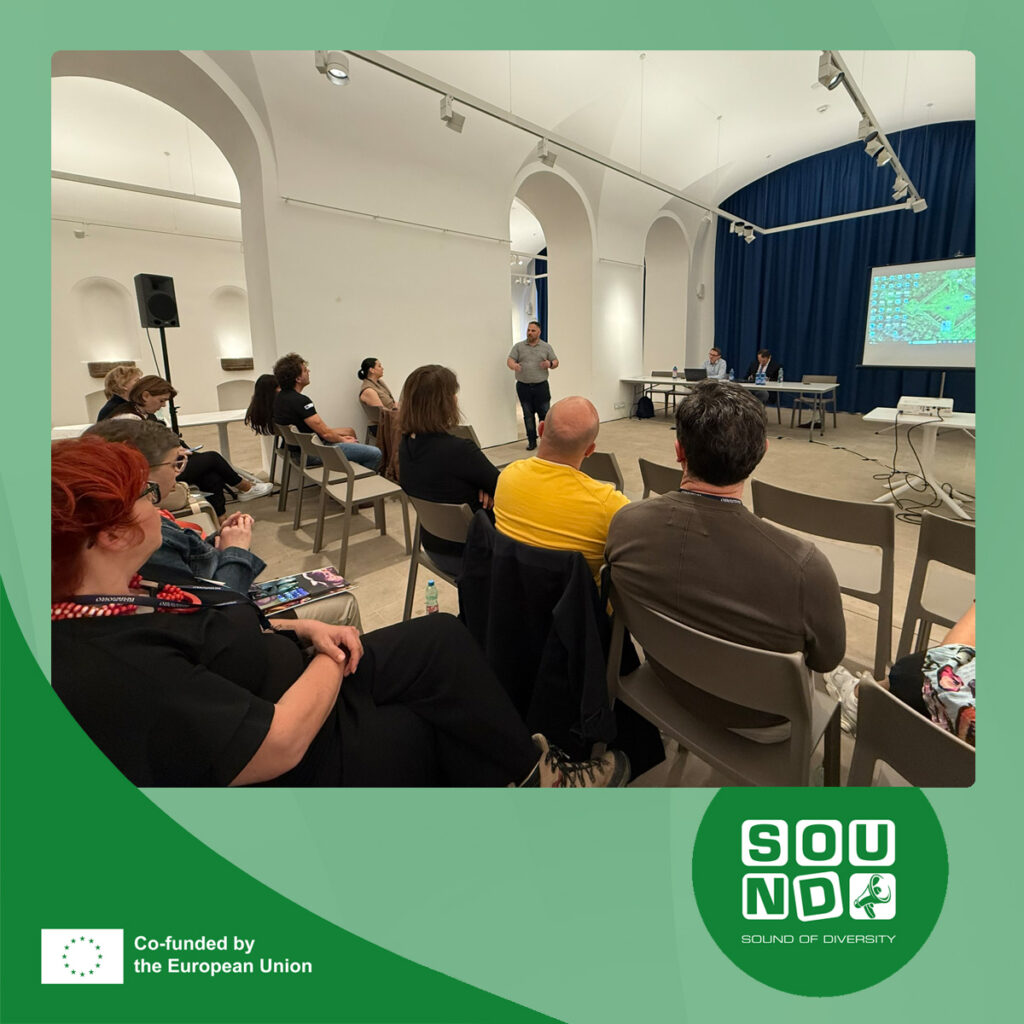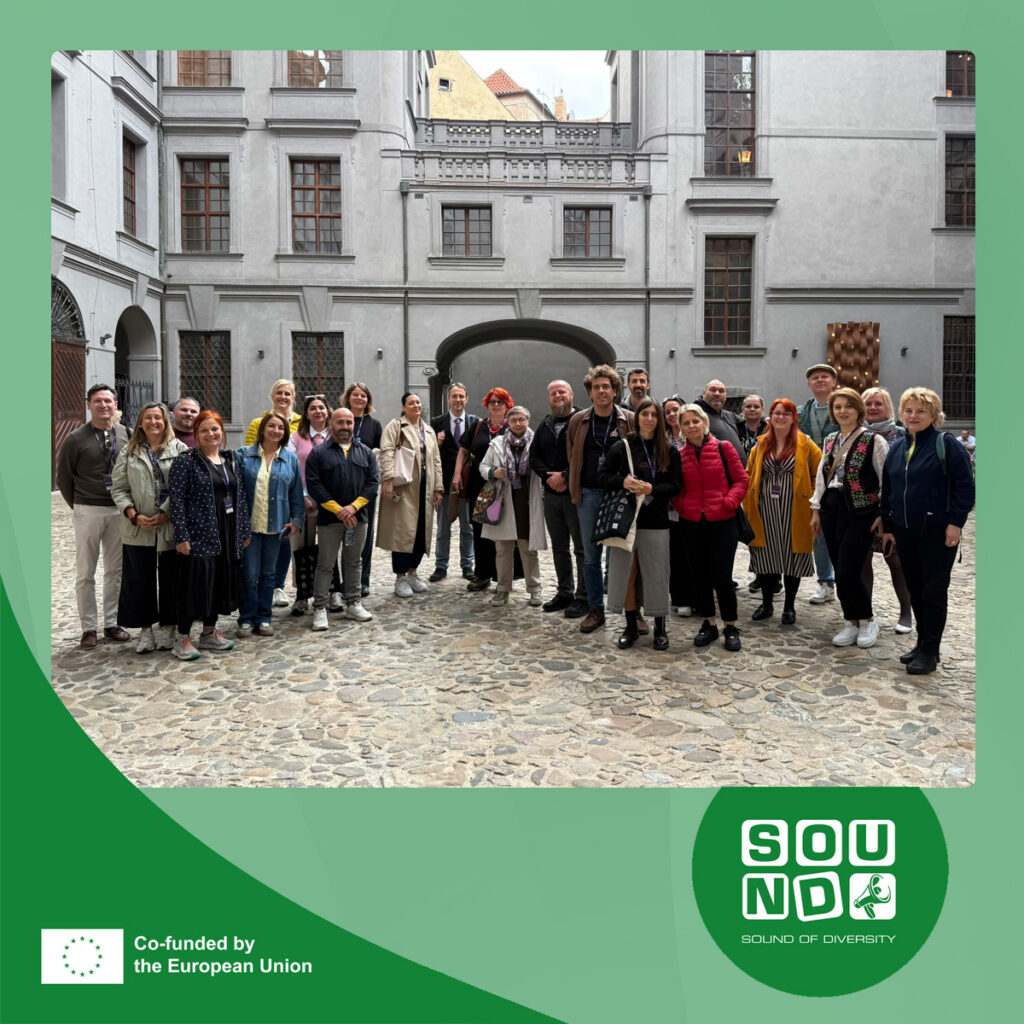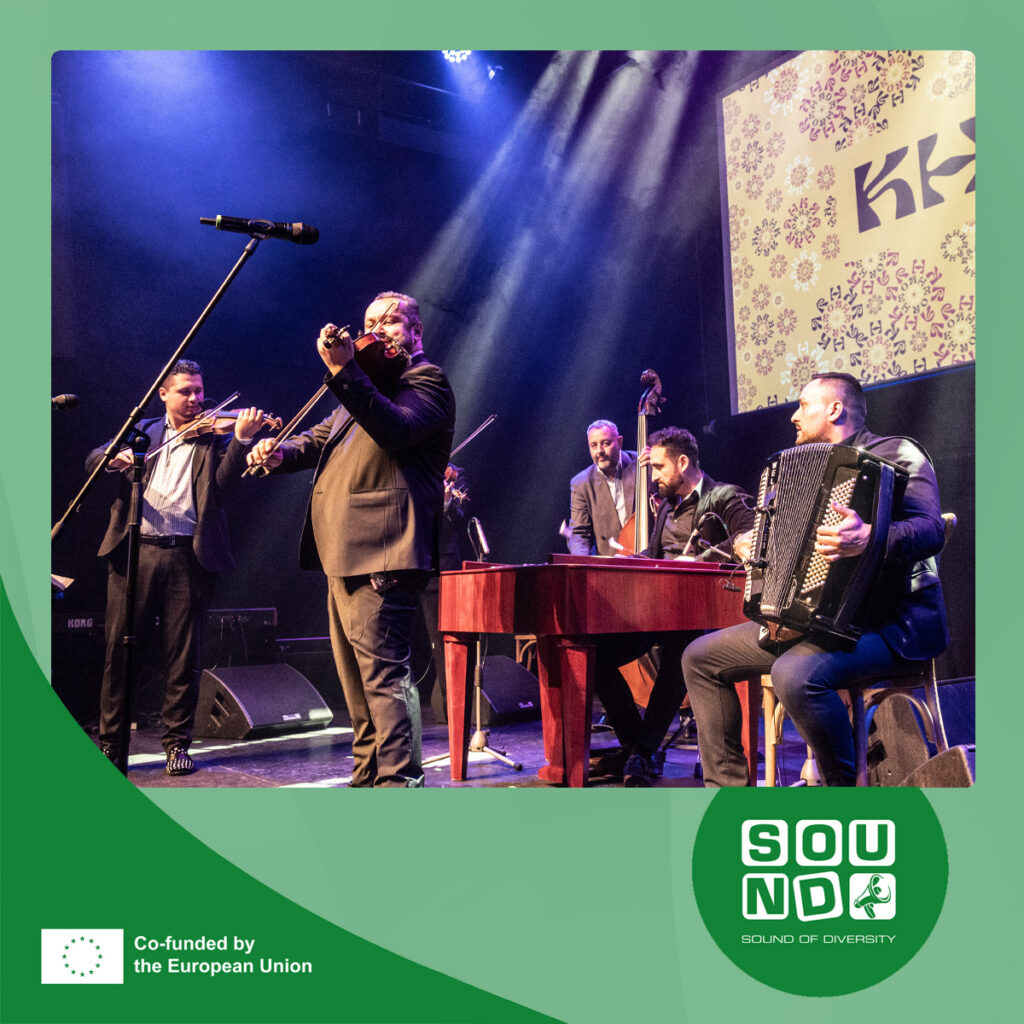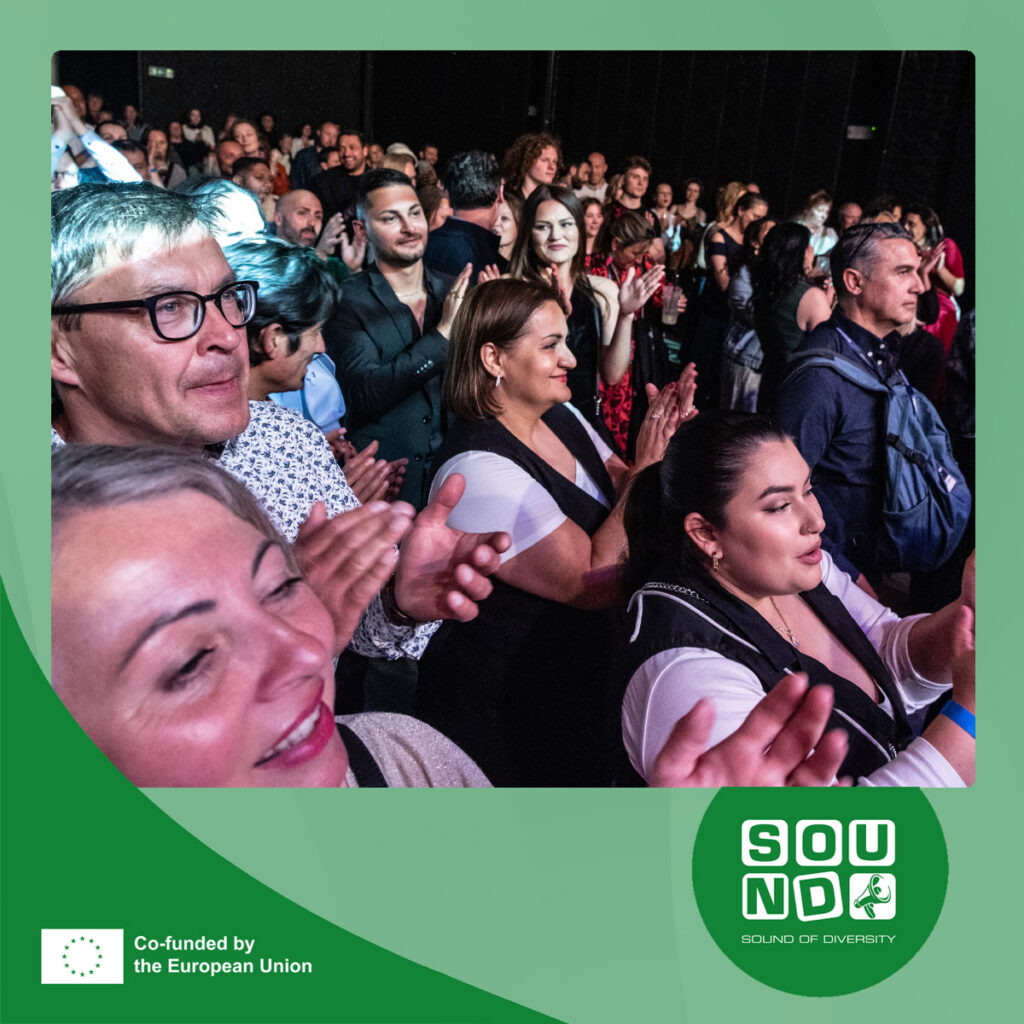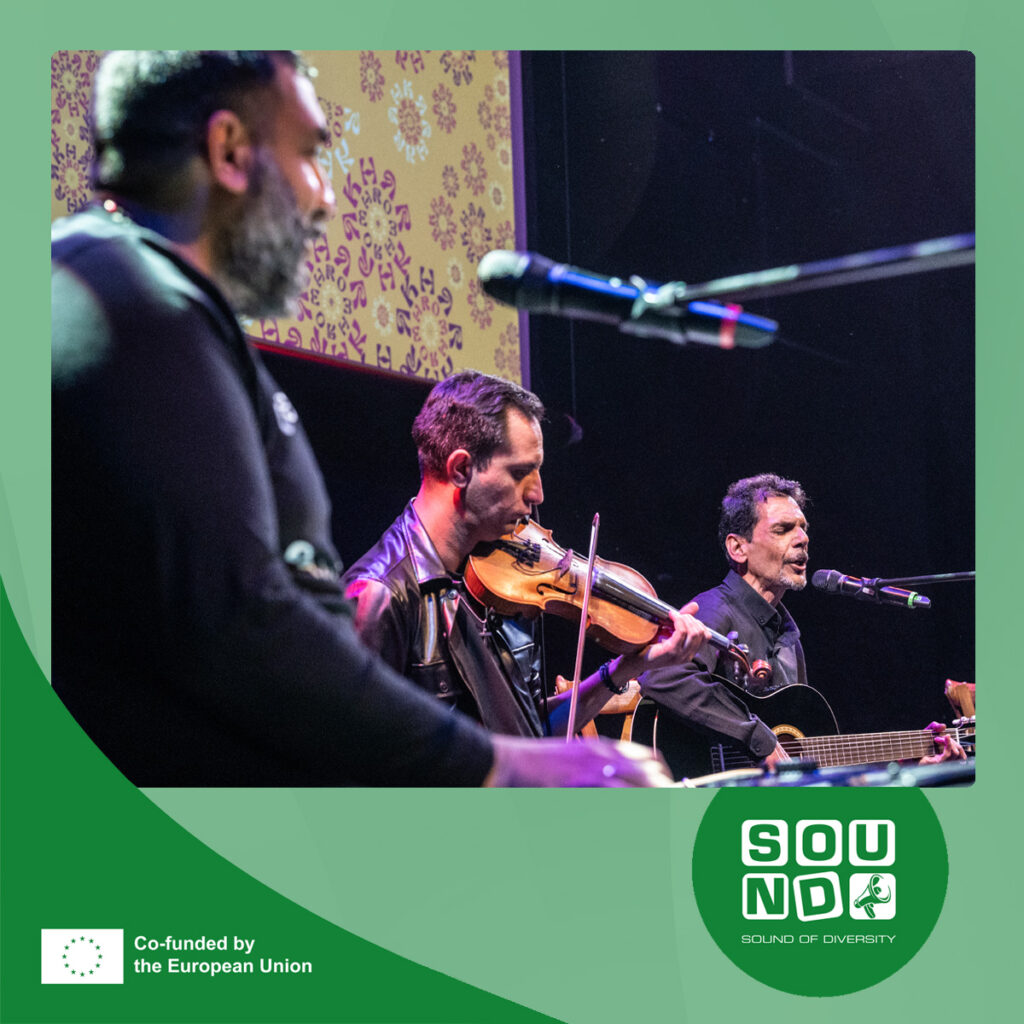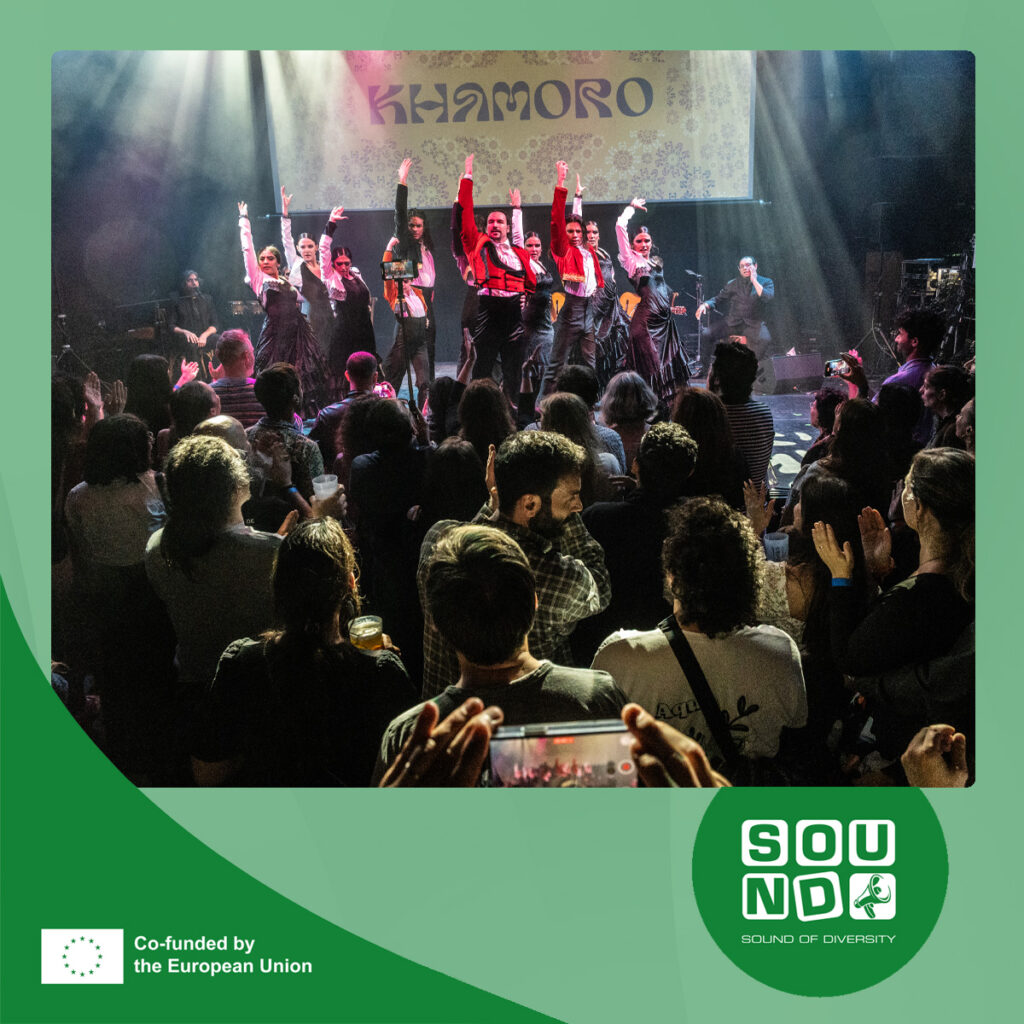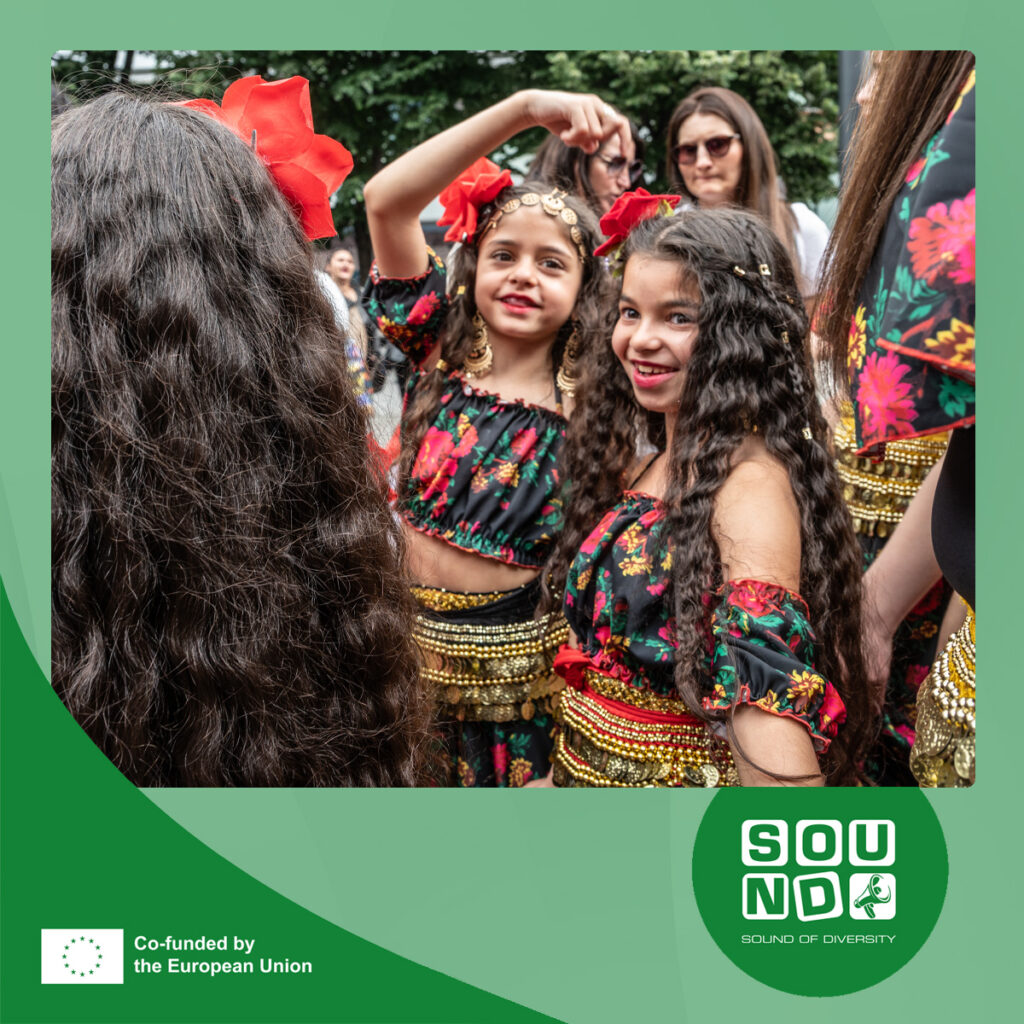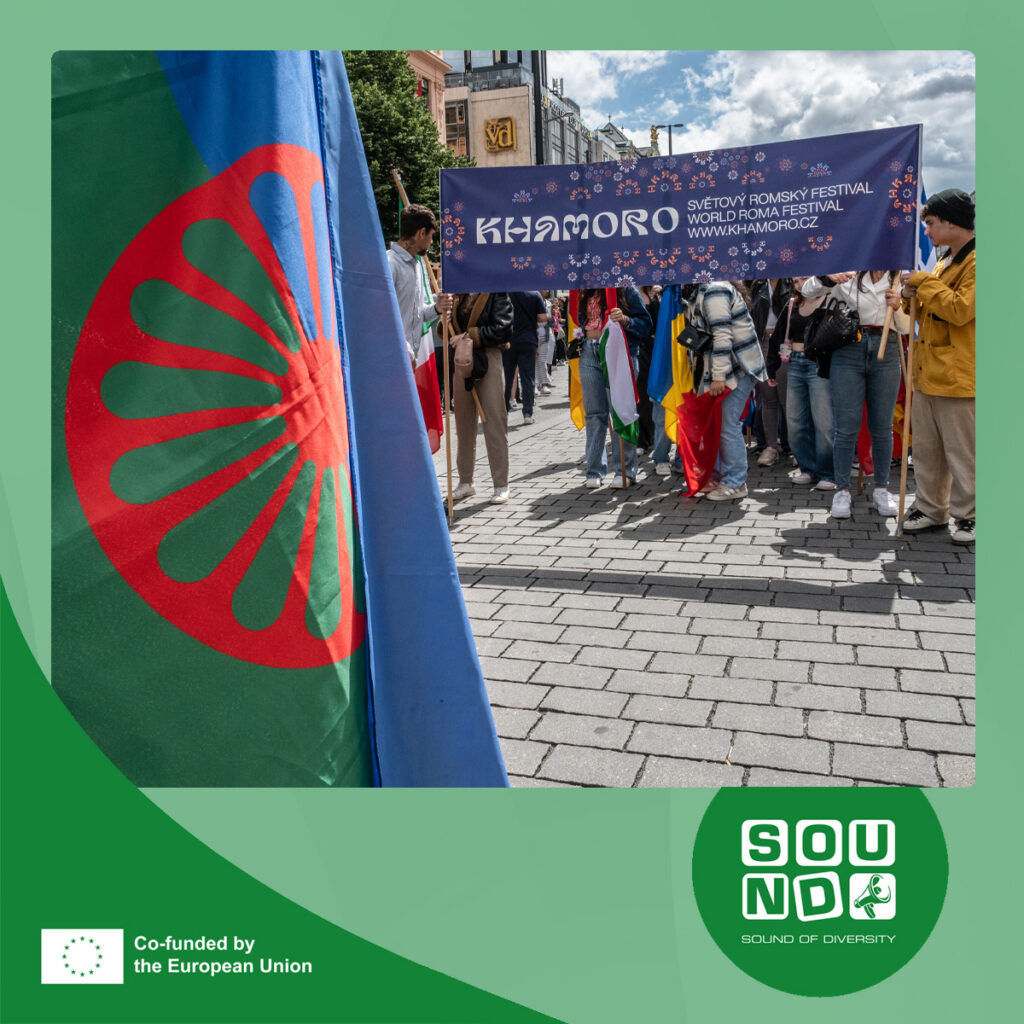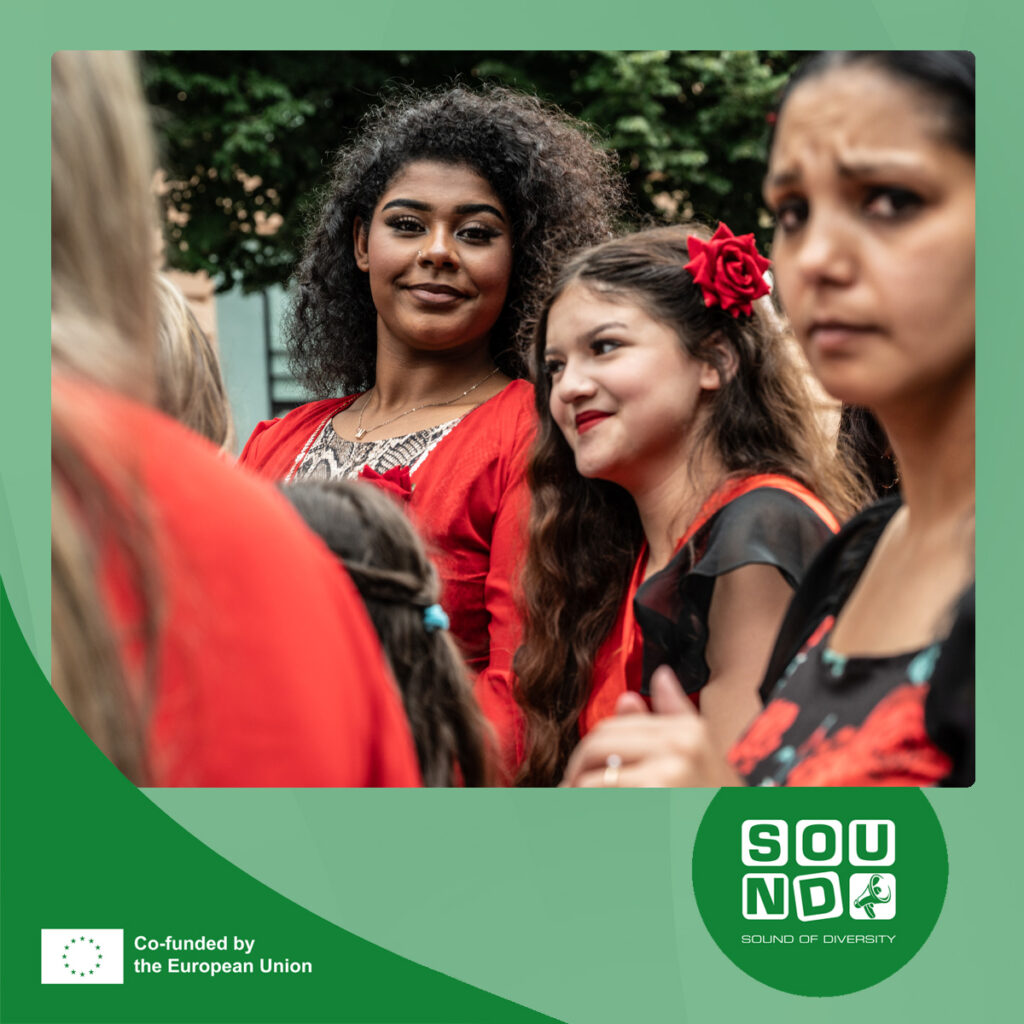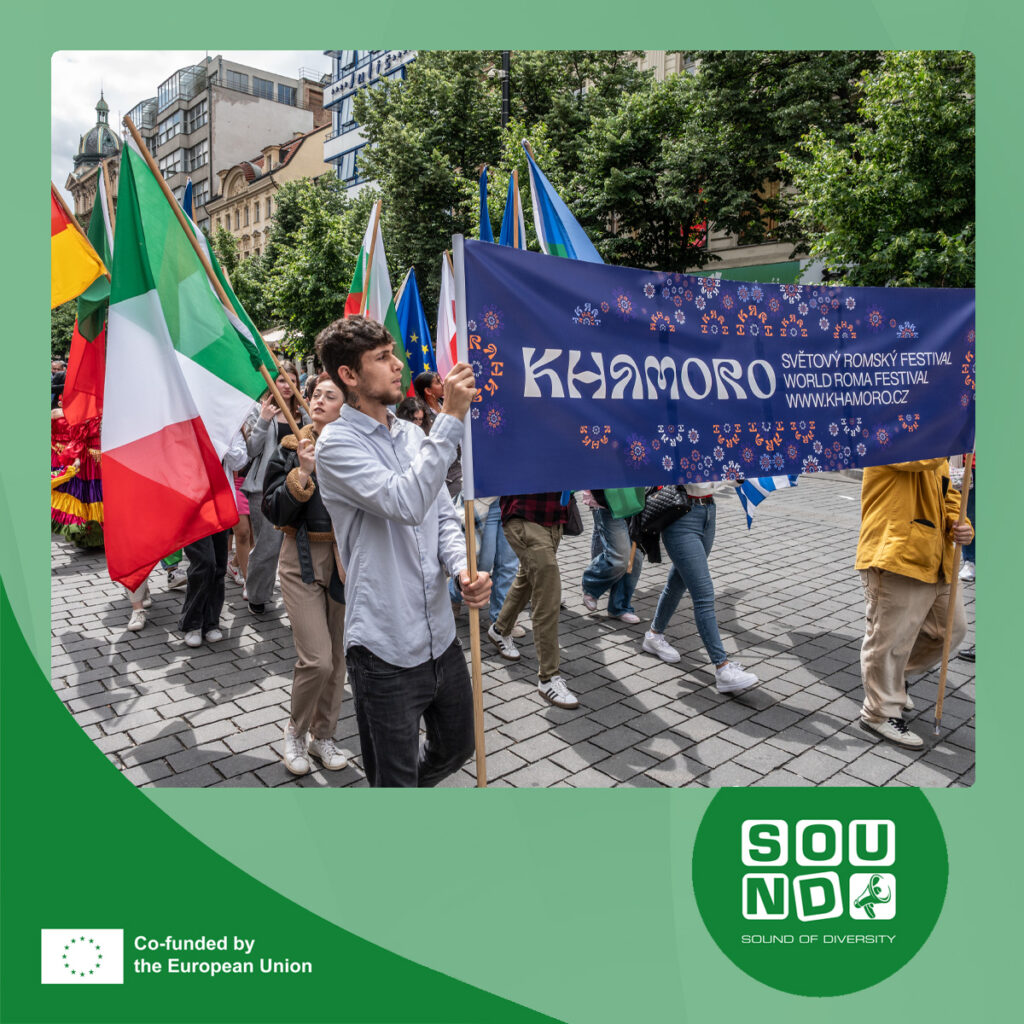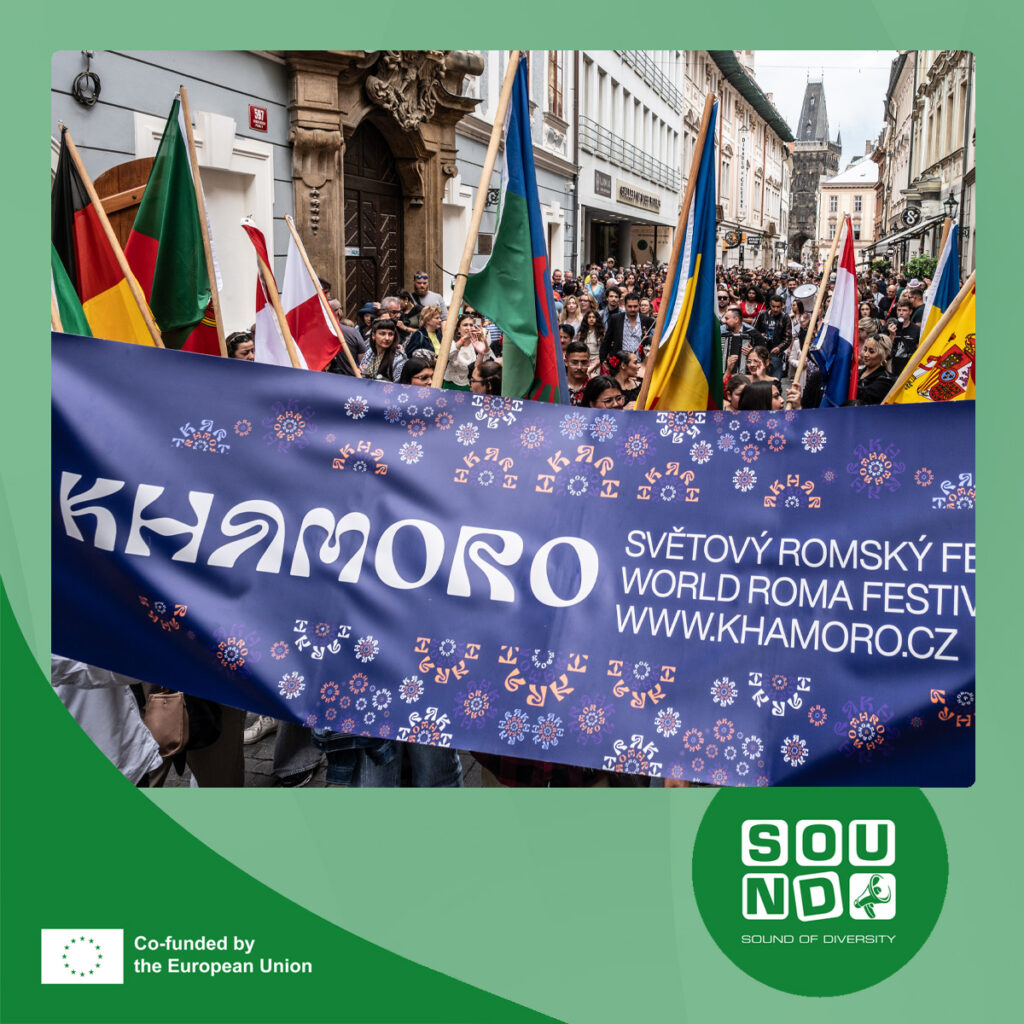‘’Roma Voices: Celebrating Europe’s Diversity at Khamoro’’ the second Sound of Diversity international event
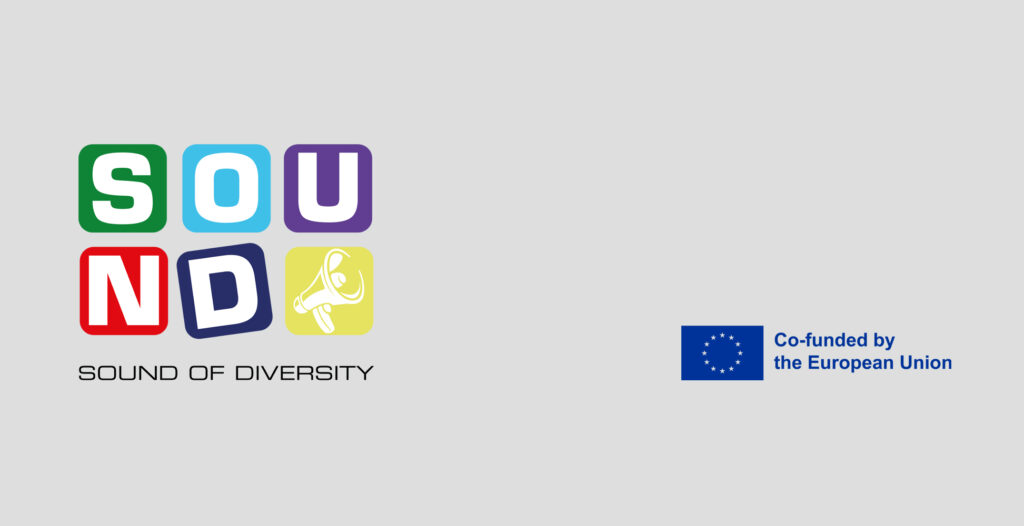
‘’Roma Voices: Celebrating Europe’s Diversity at Khamoro’’ the second Sound of Diversity international event, took place in Prague between 28th and 30th May 2025. The participants representing 14 EU countries met together to further mobilize local practitioners and activists from partner towns and cities to exchange models and share strategies that promote diversity, combat discrimination, and enhance minority participation through cultural, social, and inclusion initiatives at the local level. This edition especially highlighted innovative cross-sectoral collaborations and showcased how flagship cultural events can be meaningfully embedded into long-term diversity strategies. The event explored the role of minorities in shaping Europe’s cultural development, with reference to the new EU Roma Strategic Framework for Equality, Inclusion, and Participation.
The first official session, held on Thursday, May 29 at the Stonebell House in the Old Town starting at 10:00, was dedicated to presenting the Municipality of Prague’s cultural strategy to Sound of Diversity (SoD) participants. Key speakers included MgA. Jiří Sulženko, Ph.D., The Director of Culture and Tourism of the City of Prague, who presented the department’s mission and role with a focus on diversity and inclusion. The second speaker, Monika Ladmanová, Head of the European Commission Representation in the Czech Republic, presented the Commission’s mission in the Czech Republic in relation to diversity and inclusion—the main theme of the entire Sound of Diversity project.
The third speaker was MgA. Kristýna Kočová, a representative of Creative Prague, the city’s official organization for the development and support of culture. This session served as an introduction to the city’s local approaches to inclusive cultural policy, positioning Prague as a living laboratory for inclusive governance and aiming to showcase Prague’s model as an inspiration for SoD partner municipalities, many of which are smaller and may be at the beginning stages of developing their cultural strategies focused on integration and diversity.
Participants included representatives from the SoD project, Prague City Hall and Municipality, the CERV contact point in the Czech Republic, and the UNHCR office in the Czech Republic. The event was moderated by Nikolas Ferenc from Slovo 21.
The second part of the day was held, starting at 14:30 at the Novotel Hotel, in collaboration with ERGO Network, marking a pivotal integration of civil society expertise within the SoD framework. This session focused on presenting ways in which culture can be used to combat antigypsyism both at the national level in the Czech Republic and on the European stage.
The event began with an introduction and welcome from ERGO representative Isabela Mihalache, who also served as moderator. The first block addressed the Czech context, where panelists showcased various cultural initiatives aimed at combating antigypsyism.
Jan Husák from the organization Awen Amenca, lead expert on the JEKHIPE project, introduced the „I Will Not Be Silent” campaign. This initiative not only draws attention to the injustices faced by Roma people in everyday life but also emphasizes the need for Czech society to engage, asserting that when the Roma community suffers, the negative consequences affect society as a whole.
David Tišer, founder and director of the organization AraArt, presented artivism—a blend of art and activism—as a method for combating antigypsyism. Focusing on Roma and LGBTQ+ communities, AraArt organizes theater, music, visual art, and cultural events that challenge stereotypes and promote inclusion. The organization also offers educational programs, leadership training, and community workshops that use art as a tool for empowerment and dialogue.
Jana Hejkrlíková from Slovo 21 presented the Khamoro Festival, a high-profile cultural event that plays a vital role in fighting antigypsyism. Khamoro’s integration into the SoD network exemplifies how artistic expression and local celebration can serve as transformative tools for policy advocacy and public engagement. By showcasing the richness and diversity of Roma culture through world-class music, art, and public dialogue, the festival provides a platform for Roma voices in the cultural mainstream, thereby challenging stereotypes and fostering mutual understanding in Czech society and beyond.
The second block focused on the European context, with representatives from the following organizations presenting their work and initiatives: Saška Jovanović (Romni APS, Italy), Bianca Galusca (FAGiC, Spain), and Nina Trollvige (Trajosko Drom, Sweden).
The inclusion of the ERGO network added a valuable transnational dimension to the Prague event, reinforcing the network-of-networks approach that defines SoD’s innovative structure.
Following the panel discussion, a networking session was held between SoD participants and members of the ERGO network.
The third official part, also on Thursday, May 29, began at 17:00 and featured the promotion of the book I See Music in Color, held at Kavárna pod Korunami Stromů—a beautiful open-air café beneath the trees. The book, written by Patrik Banga, focuses on the life of Mário Bihári, a renowned Czech Romani accordionist who lost his sight at a young age. In this extended interview, Banga, a Magnesia Litera award-winning journalist, captures Bihári’s life story, filled with humor, emotion, and powerful reflections. The book explores questions such as: What is it like to lose your sight as a child? What challenges does a blind musician face? What happens when a guide dog misbehaves? And what did police harassment of Roma people look like in the 1990s Czech Republic? The book promotion was accompanied by a live music and dance performance, emphasizing how storytelling and lived experience contribute to community-building and intercultural education—key pillars of the SoD methodology.
The final event on Thursday was a Traditional Roma Music Concert, held at La Fabrika starting at 20:00. The concert featured performances by three international groups: Ivan Herák Band and Erika Nováková (Czech Republic), Kostas Pavlidis (Greece), Ballet Flamenco Sergio González (Spain).
This cultural evening functioned not merely as entertainment but as an active tool of inclusion, linking public engagement with the broader strategic goals of the SoD initiative.
The fifth part took place on Friday, May 30, starting at 10:00 at Clam-Gallas Palace. The aim of this event was to showcase best practices implemented in Prague regarding the integration of minorities. It focused on presenting the work of the House of National Minorities (HNM), with presentations from Mgr. Jakub Štědroň, Ph.D., Director of the House of National Minorities, who described the origins and main activities of the HNM, Mgr. Jan Janoušek, Specialist for the Integration of Foreigners, who outlined activities and support structures for foreigners living in Prague. and Mgr. Jan Dužda, Roma Coordinator for the City of Prague, who presented his work related to the Roma community.
These sessions highlighted Prague’s systemic approach to minority inclusion, demonstrating how institutional mechanisms can be interlinked with cultural interventions.
The sixth part of the event was the Roma Parade, which took place on Friday, May 30th, at 12:00 PM at Wenceslas Square. All musicians who performed at the festival from Thursday to Saturday, along with 300 Roma children from across the Czech Republic, gathered in the city center to begin the parade. It started at Můstek and ended at Lesser Town Square.
The Roma Parade promotes visibility and positive representation of the Roma community, combats prejudice through a public celebration of Roma heritage, and encourages intercultural dialogue and appreciation of diversity. In addition to the project participants, around 4,000 people joined the parade.
The parade, together with performances such as the 19:00 – Klajazzromflow Concert at Čapadlo Summer Terrace, represented innovative forms of civic activation through art and street-level engagement, extending the impact of the SoD Network beyond institutional stakeholders and into the everyday urban fabric.
#EuropeanUnion #EUproject #YouthPolicies #SoundofDiversity #activeyouth
“Funded by the European Union. Views and opinions expressed are however those of the author(s) only and do not necessarily reflect those of the European Union or the granting authority. Neither the European Union nor the granting authority can be held responsible for them.”







